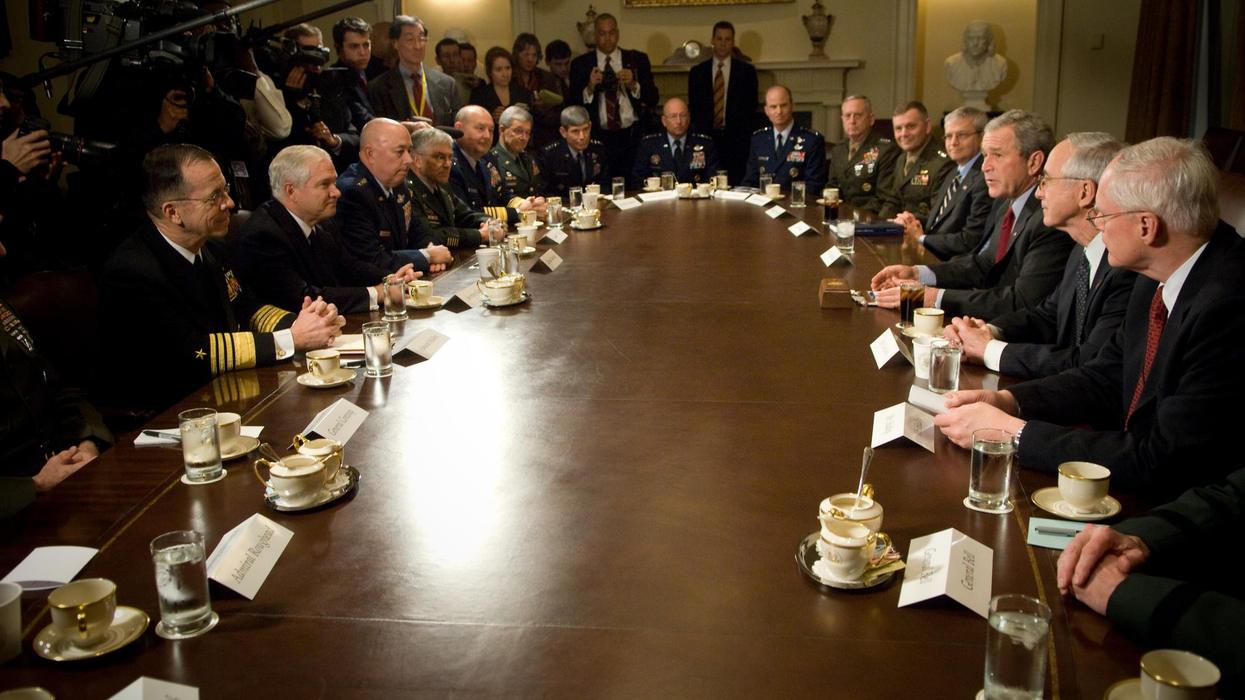Faced with a countdown on its tenure in office, the Trump administration is accelerating efforts to bar President-elect Biden from returning to the Joint Comprehensive Plan of Action — the nuclear accord between the United States, other major world powers, and Iran — and to cement the U.S.-Iran relationship into one of perpetual conflict.
Soon after news agencies called the presidential election for Joe Biden, Axios reported that the Trump administration was preparing a so-called “flood” of sanctions on Iran in the coming weeks. Consistent this move, the Special Envoy for Iran and Venezuela Elliott Abrams traveled to Israel to help strategize with the Netanyahu government on the proposed sanctions on Iran. According to an Israeli source, “The goal is to slap as many sanctions as possible on Iran until January 20.”
None of this surprising. Ever since the U.S.’s cessation of its participation in the JCPOA, the Trump administration has sought to render permanent the state of alienation between the U.S. and Iran, precluding any successor administration from either returning to the JCPOA or entering a new diplomatic agreement in its place. Figuring prominently in this strategy is the so-called “sanctions wall,” the term coined by Mark Dubowitz of the Foundation for Defense of Democracies, which has, as its express purpose, to politically frustrate any successor administration that dares consider lifting sanctions imposed on Iran.
To effectuate this “sanctions wall,” the Trump administration has imposed sanctions on broad sectors of Iran’s economy, as well as its largest banks and companies, under non-nuclear-related authorities, including the U.S.’s counterterrorism sanctions authority. This includes, as an example, sanctions on Iran’s financial sector and its aluminum, construction, copper, iron, mining, manufacturing, steel, and textile sectors, as well as on Iran’s central bank, Bank Melli, Bank Mellat, Bank Tejarat, and Bank Parsian. If, the theory goes, the Biden administration is scared off politically from lifting these sanctions, then the United States will be unable to return to the nuclear accord; that accord will collapse absent its necessary party; and escalating conflict between the United States and Iran will prove the name of the game moving forward.
The so-called “flood” of sanctions being prepared in the coming weeks is more of the same. These sanctions are not designed to change Iran’s behavior or to deter it from conduct anathema to U.S. interests. Instead, the whole point of the sanctions is to set a trap for the Biden administration.
The Biden administration would do well not to fall into this trap. Absent immediate steps to undo the damage wrought by Trump and reinvigorate the JCPOA through a compliance-for-compliance agreement with Iran, President Biden will face the same crisis that prevailed in the lead-up to the JCPOA where Iran’s nuclear program built in step with U.S. sanctions. Only this time, the one exit from this escalatory cycle — a political agreement to deescalate and calm tensions between the two countries — will be foreclosed.
In a matter of weeks, President Biden will take office facing a historic pandemic and a ravaged economy, as hundreds of thousands of Americans have died and millions have been left jobless because of the indifference of the Trump administration. In tackling this, the Biden administration will be dealing with arguably the gravest national security threat facing this country since President Lincoln’s inauguration in 1861.
It would thus behoove President Biden not to add to the stress that his administration will be under in its opening months by delaying a compliance-for-compliance agreement with Iran and lifting all those sanctions imposed in bad faith by the Trump administration. To do otherwise risks a most unnecessary choice — that between acceding to a growing Iranian nuclear program or launching the opening salvo of a devasting military conflict in the Middle East.

















